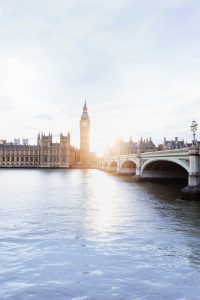When you think about ‘careers in the UK Parliament’, what comes to your mind? Besides MPs, ministers and their staff, you might be surprised by the huge selection of jobs and departments that make the parliament operate, and the community of people who make it all happen. King’s Careers & Employability went down to the Parliamentary Recruitment Fair in Westminster Hall to learn more about the jobs and careers they offer.
1. What kind of jobs are there in the parliament?

At the Recruitment fair, we saw stands from many different departments, including House of Commons and the House of Lords Libraries, Human Resources, Parliamentary Digital Service, Hospitality, Security, Visitor Services, Education, Finance, IT and Workplace Equality Network among many more. As you can imagine, there are many types of jobs within each of these departments.
Entry–level jobs, including part-time and flexible working roles, were also all around us. It was especially interesting to hear about Visitor Services: they provide tours of the Parliament and help with gatekeeping and welcoming visitors. A few staff members said that they started working there during their university studies, and really recommended the post for “anyone who is interested in politics and loves to chat with people”.
Another entry-level job type we hear about was with the Digital Services, who help of Parliament with their digital queries – representatives at the stall recommended the Digital Services for “anyone interested in helping people and developing some solid digital skills”.
2. What graduate opportunities and schemes are there?
There are loads! For graduates, there is the Graduate Development Programme, which are traineeships recruited by both the House of Lords and the House of Commons. In these traineeships, you will work with politicians to help dissect government policies – perfect if you’re interested in public policy, current affairs, and policy. Applications for the Graduate Development programme are already finished for this year, which means your next chance to take part in a traineeship will be in 2021, with applications around November – December 2020.
If you are looking for other work placement or apprenticeship opportunities, there are many to choose from:
- The Speaker’s Parliamentary Placement Scheme is a 9-month paid work experience for applicants from underrepresented backgrounds.
- The Undergraduate Sandwich Student Placement Scheme offers a small selection of placements for students on 4-year
- The House of Commons Apprenticeship Scheme gives access to applicants from all backgrounds to work anywhere in the House of Commons such as Team Leading, Digital Service, Business Administration, Electricians, Finances and many more.
- The House of Lords Apprenticeships offers a scheme to introduce applicants to work anywhere in the House of Lords teams and departments.
- The Civil Service Fast Stream has 15 different schemes, one of which is the Houses of Parliament Fast Stream.
If you are thinking about applying to grad schemes or apprenticeships, King’s Careers & Employability is here to support you in your journey – from general information about the sector to workshops in core skills, application, and interview advice, go to our KEATS pages and discover the many resources available to you.
3. Who can work at the parliament? And what about non-UK natives?
The key message we heard during the Recruitment fair was this: Everyone is welcome.
The Parliament has diverse and inclusive policies, including a full department for Diversity & Equality & Inclusion and Workplace Equality Networks to support LGBTQ+, disabled, widening participation or underrepresented groups. We also learned that flexible working is very common, and there are many job-sharers and people who use work-from-home schemes.
If you are worried about not being a UK national, never fear! There are people from all backgrounds working at the Parliament. Currently, EU nationals may apply to work as normal, and international applicants should provide their right to work with a visa and may be asked to provide at least three years’ worth of proof of UK residence. Due to the high-profile workplace, applicant security checks might be more thorough or take longer at the Parliament than in other UK organisations – so make sure to keep your work permit in order and allow plenty of time for your application process!
4. What career progression is there at the Parliament?
As we chatted with staff members, one thing became quite clear: people have had varied and changing career journeys in Parliament which span many departments and teams.
If you’d like to read more about career journeys within the UK parliament, as told by staff members themselves, we have collected Case Studies which you can read at the Careers & Employability office!
5. What kind of people work there and who do they look for?
At the Recruitment Fair, we attended talks focusing on personal career journeys in Parliament. What was most memorable about these talks was the openness about careers as a journey – from civil servant to project manager, we heard stories of progression, finding your feet and ending up progressing down paths that they might never have expected. This is true for us all – we might want to discover new roles and find that in time we progress towards a more focused career path. During these talks, as well as from interactions with the staff members, it became clear that no matter what your role might be there is one thing that unites all those who work in Parliament – a shared mindset of democracy and an interest to serve the public.